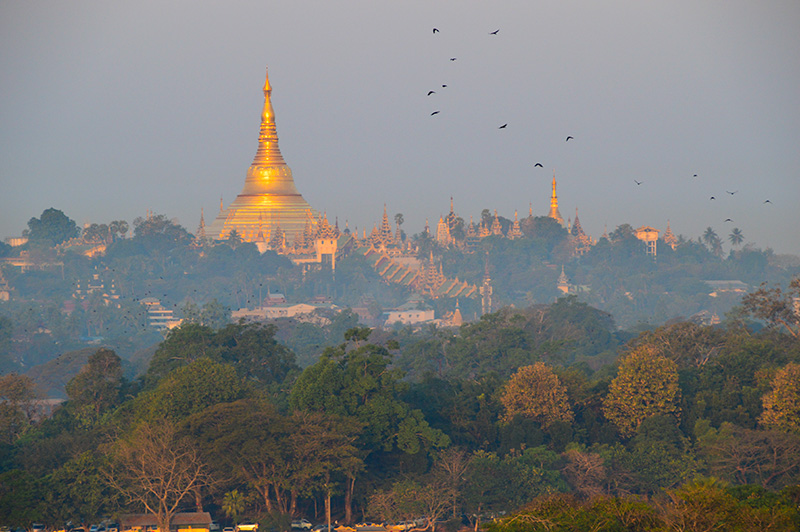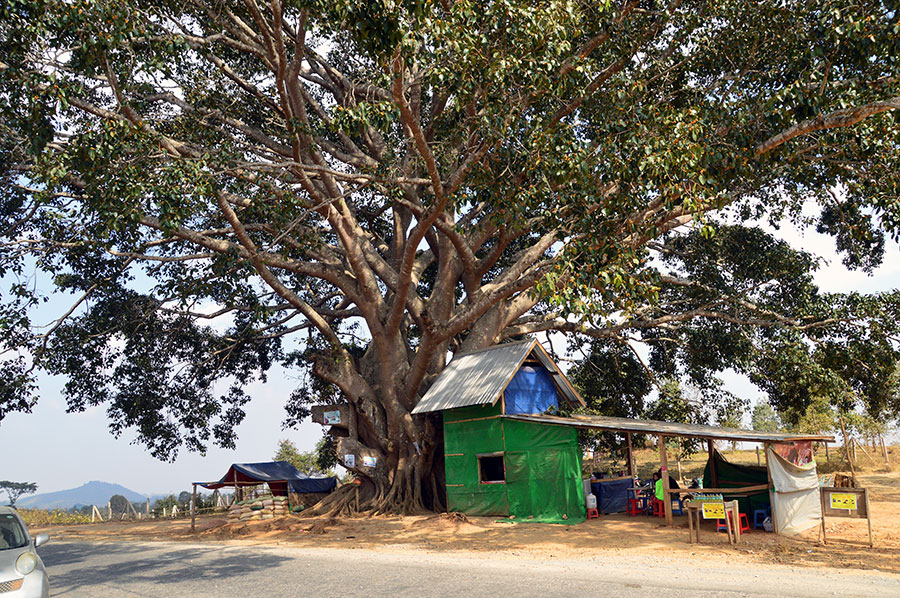It’s 5:30 am on my last day in Burma. The full moon was last night so I was hoping for a setting moon in the morning over the city. On the shores of Yangon’s Kandawgyi Lake, the black birds were assembled by the hundreds.

Their familiar ‘kaw kaw’ combined with the sound of the call to prayer from a local mosque as I looked across the late to the Golden Pagoda, perhaps the most sacred of Buddhist pilgrimages reminded me of the diversity I have witnessed here over the past three weeks.
It was early, I looked at my watch and remembered it’s “Burma time” 30 minutes off the clock from other countries in the world. A big reason I came to Burma this time around was to get a sense of how things have changed, if at all, since the landslide victory of the National League for Democracy (NLD), the political party of Aung San Suu Kyi. I knew that things couldn’t change overnight but I still felt like it was important to be on the ground to get the sense for myself.
The NLD won a record number of seats in parliament in a landslide election in November 2015 and is now a major player in choosing the President in March 2016. This is a huge change to begin with and there seems to be a calm on the streets as the hot season begins. I get the sense that the people are waiting for some direction, for incremental and real change to happen on a policy level. They will get some idea in about three weeks when they choose a president.
The question remains, “Can Aung San Suu Kyi, often referred to as “the lady” and her political party bring the changes necessary to create a democracy of sorts in this country long on promise but short on real effective change?” Before making any particular comments, Suu Kyi often reverts to her default answer, “that the country must have the rule of law in order to create the legal framework and changes necessary to begin reforms.”

No doubt, “The Lady” will have enormous influence in consultations with whomever is chosen as president, but from what I saw these past three week, the real changes need to come from the people themselves, individuals, local heroes or what I might refer to in this Buddhist country as hidden Buddha’s. The changes needed are massive but there are also changes that individuals can begin to make.
So yes, it is Burma time; they are on the clock, albeit a different clock from the rest of the world. It is time for change, the beginning of responsibility; individuals taking charge of their own futures in their own communities are the ones that can begin the change.
“The higher you climb, the windier it gets,” a monk said to a local Burmese friend of mine. Well, it’s going to get windy, so be careful how high you climb and choose a solid tree like the banyan tree, a sacred tree with lot of hope for the future for the many different groups of people of Burma.
Read Ethical Traveler's Reprint Policy.
